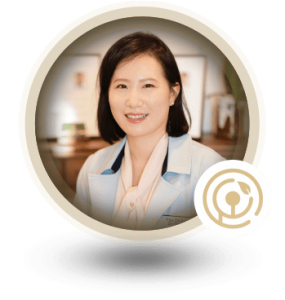Introduction:
Menopause is a natural phase in a woman’s life, marking the end of her reproductive years. While it is a normal biological process, the symptoms associated with menopause can be challenging for many women. Chinese medicine, with its holistic approach and centuries-old wisdom, offers a range of natural remedies to alleviate menopause symptoms and promote overall well-being. In this blog post, we will delve into the principles of Chinese medicine and explore various treatments that can help women navigate through this transitional period with grace and vitality.
Understanding Chinese Medicine:
Chinese medicine views menopause as a shift in the balance of yin and yang energies within the body. Yin represents the cooling, nourishing, and feminine aspects, while yang symbolizes warmth, activity, and masculine qualities. When the harmonious balance of yin and yang is disrupted, menopausal symptoms may arise. Chinese medicine aims to restore this balance through various therapies, including acupuncture, herbal medicine, dietary adjustments, and lifestyle modifications.
Acupuncture for Menopause Symptoms:
Acupuncture, a key component of Chinese medicine, involves the insertion of fine needles into specific points on the body. It is believed to regulate the flow of qi (vital energy) and rebalance the body’s energy pathways. Acupuncture can effectively address menopause symptoms such as hot flashes, night sweats, mood swings, insomnia, and fatigue. By stimulating specific acupuncture points, the body’s natural healing mechanisms are activated, promoting hormonal balance and overall well-being.
Herbal Medicine for Menopause:
Chinese herbal medicine has a rich history of utilizing plants, minerals, and animal products to treat various conditions, including menopause. Herbal formulas are carefully crafted to address individual symptoms and imbalances. Some commonly used herbs for menopause include dong quai, black cohosh, red clover, and Chinese motherwort. These herbs can help regulate hormone levels, alleviate hot flashes, nourish yin energy, and support overall vitality. It is important to consult a qualified Chinese medicine practitioner to ensure safe and appropriate use of herbal remedies.
Diet and Lifestyle Recommendations:
In addition to acupuncture and herbal medicine, Chinese medicine emphasises the importance of a balanced diet and a healthy lifestyle during menopause. Incorporating foods with cooling properties, such as cucumber, watermelon, and mung beans, can help alleviate heat-related symptoms. Avoiding spicy and greasy foods, caffeine, and alcohol is also recommended. Regular exercise, stress management techniques like qigong or tai chi, and sufficient restful sleep contribute to overall well-being and can ease menopause symptoms.
The Holistic Approach:
One of the strengths of Chinese medicine lies in its holistic approach to health. Rather than merely targeting symptoms, Chinese medicine focuses on treating the underlying imbalances that contribute to menopause symptoms. By considering the unique constitution and patterns of disharmony in each individual, Chinese medicine provides personalized treatments that address the root cause, promoting long-term relief and well-being.
Conclusion:
Chinese medicine offers a comprehensive and natural approach to managing menopause symptoms. By incorporating acupuncture, herbal medicine, dietary adjustments, and lifestyle modifications, women can find relief from hot flashes, night sweats, mood swings, and other discomforts associated with menopause. Consulting a qualified acupuncturist in Perth & Chinese medicine practitioner is crucial to receive personalised guidance and support throughout this transformative journey. Embracing the wisdom of Chinese medicine can empower women to navigate menopause with grace, vitality, and improved overall health.






